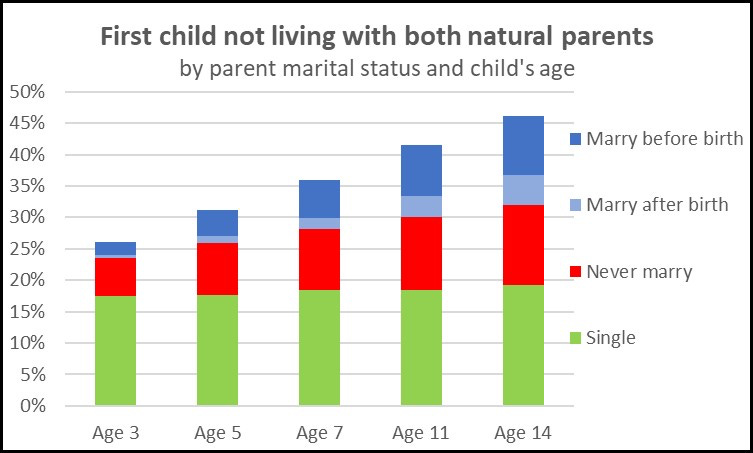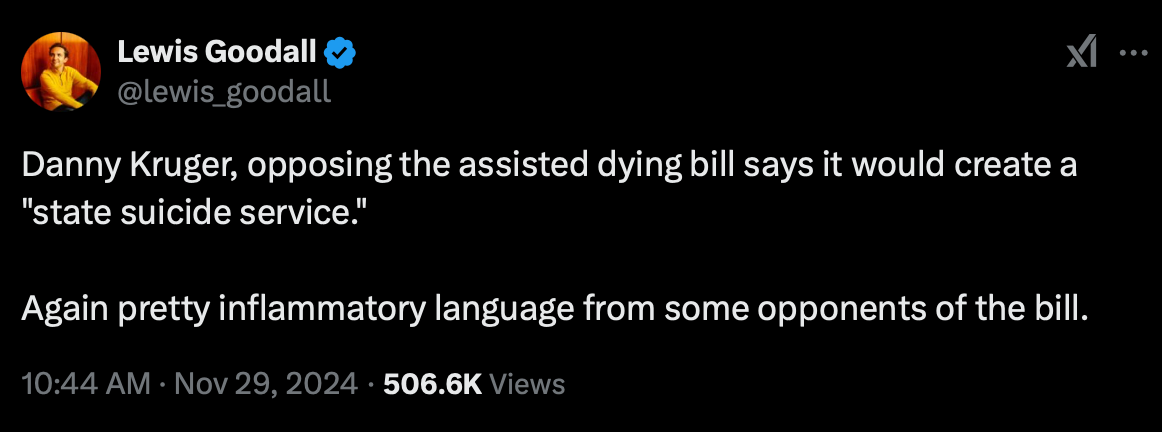The Era of Stagnation
Soviet Russia’s attempt to create a new Jerusalem had, since 1917, stimulated and concentrated the energies of misguided idealists who had been willing to excuse (or deny) the morally depraved behaviour of that state in the belief that a new world was being built.
By the middle of the century, no impartial onlooker could delude himself as to the reality of that society. Rather than the egalitarian utopia they had intended, Soviet planners had created an inefficient, arbitrary, and morally corrupt state that possessed no sense of human dignity. Yet the USSR was not merely a totalitarian state but also an ideological one. Authoritarian states can adapt when their experiments fail by simply replacing a few ministers and blaming the deficiencies on them. But an ideological state cannot adapt without signalling the repudiation of the doctrines on which it was founded. Thus the Soviet Union entered the period described by Gorbachev as an ‘era of Stagnation’, incapable of adapting in the face of its own inadequacies. Marxist doctrines ossified, and degenerated into the empty slogans of a dead dogma, chanted liturgically in response to any criticism.
Fifty years on, liberalism has entered its Brezhnev era.
Brezhnev-era Liberalism
In mid-century Britain, liberalism’s basic claims were highly persuasive. The evident dissatisfactions of unhappy marriages, racial bigotry, and petty brutality were well-known, experienced, current, and concrete. By contrast, the negative consequences of liberal reforms which some conservatives predicted were entirely abstract and located in an unknown future. British liberals in the 1960s simply could not imagine a future in which by-elections were being fought as a proxy for the Kashmir dispute; where violent criminals were repeatedly re-released onto the street; where almost half of all children were being raised in homes without their biological father; where a third of all pregnancies lead to an abortion; or where the head of the household in almost half of social housing in London was born abroad.
Two out of three people in social housing in Knightsbridge, Belgravia & Hyde Park were born outside the UK, half of whom are unemployed. According to Foxtons, the average price of a 1 bedroom home in Knightsbridge is £1,380,000. Sources: https://migrationfacts.com/ https://www.foxtons.co.uk/living-in/knightsbridge/house-prices
Liberal policies, designed to remedy known evils in their own day, have ushered in a moral, social, and economic chaos which none of them anticipated. One of the chief architects of our liberal society - Roy Jenkins - himself conceded this point shortly before his death. He admitted Lord Lester - one of the architects of our race relations legislation - that “we just didn’t realise that in the struggle for race equality we would have also to struggle for a secular society and for the universal values of human rights”. Yet liberals have not remained engaged with the debates engendered by the reality they have built around them.
Much like the USSR, Britain is now an ideological state. Liberalism was once confident in its doctrine and rectitude, but now its adherents seem unwilling to examine dogmas long since inherited. Instead, liberalism slowly calcified into the dominant and unquestioned ideology of the last four generations, succumbing to the same stagnation which beset Brezhnev-era USSR.
When watching debates from the 1960s, a conservative will find themselves naturally agreeing with the person arguing for the conservative position - but may typically find that the liberal is the more convincing debater. By the mid-century, liberals were usually more informed, had facts more readily to hand, and could present the counter-arguments more intelligently. This is because conservatism at this time was the ossified doctrine, and was sometimes adhered to more out of prejudice than through reason. By contrast, in the twenty first century it is the conservatives who are more informed about the issues of the day, whether it be assisted suicide, the impacts of immigration, the reality of fatherlessness, or the patterns of criminality. Brezhnev-era liberals are not merely ignorant of the debate, but are frequently ignorant of their own ignorance.
Source: https://marriagefoundation.org.uk/research/source-of-family-breakdown/
Liberal orthodoxies are now so entrenched as to be useless in tackling the social ills which confront them, and which have resulted from their own excesses. As families break down, the quality of education crumbles, mental health crises rise, groups riot on the streets, drugs are gradually decriminalised, alcohol and gambling addictions flourish, and crime rates rise, criticism of the dominant orthodoxies is not met with a reasoned response, but with pre-packaged formulas - if not silence or outright hostility. This occurs across the board. “It is better to rehabilitate offenders than to punish them.” “It’s not good for children to learn by rote.” “Diversity is our strength.” Are these claims true? How would we know? They are hypotheses that we are not permitted to examine.
When Henry Mayhew published London Labour and the London Poor in 1851, William Makepeace Thackeray reviewed the work with the admission that “these wonders and terrors have been lying by your door and mine ever since we had a door of our own. We had but to go a hundred yards off and see for ourselves, but we never did.” This is the condition of the contemporary liberal. Where they were once keen to debate and proselytise for their positions, large swathes became unwilling to examine dogmas long since inherited, whilst the social consequences of their doctrines multiplied and deepened.
The Missing Data
From the 1960s to the 1990s, when liberalism was ascendant, it was sufficient for liberals to inoculate themselves from criticism by simply accusing their opponents of being judgmental or prejudiced. But as the effects of liberalism developed over the decades, the evidence for its failings became readily apparent, and key data points began to disappear. Until the 1990s, the Lords and Commons Family and Child Protection Group published data demonstrating that children were 33 times more likely to suffer abuse when living with their mother’s boyfriend instead of the biological father. In the 1990s Whitehall ceased to record and report on this information.
Stefan Zweig once wrote that “society is always most cruel to those who betray its secrets”. The danger of an ideological society whose ideology is visibly failing is that those secrets cannot be restricted to one or two ‘big lies’. Instead they metastasise throughout the ecosystem, and universal deceit becomes necessary. Whereas it was once sufficient to suppress specific data points, the consequences of liberalism are now so widespread that we need to suppress data on almost every level of government policy. Neil O’Brien MP has been gathering statistics on the impact of immigration, but has found that major departments now refuse to record or release statistics on how usage of their services are broken down by nationality: HMRC refuse to record data on tax yield by nationality; as does the DWP on welfare; the Home Office on arrest data; and the MOJ on sentencing. Are you looking for evidence which might inform debate? Brezhnev-era liberalism will ensure there’s nothing to see.
This is the opposite of how a healthy society behaves. During the Victorian era, parliamentary research into the reality of poverty, ignorance, and exploitation was earnest and exhaustive. Parliamentarians of different persuasions may have disagreed about the correct way to manage the social ills they uncovered, but they refused to avert their eyes to the society which existed around them. So comprehensive were their researches that Karl Marx would use the Parliamentary Blue Books as credible evidence in his denunciations of the capitalist system. A Brezhnev-era liberal would dismiss this evidence on the grounds that it was liable to exacerbate class tensions.
The Liberal Paradigm
Brezhnev-era liberals are shackled to the debates of the 1960s, and cannot conceive of politics outside of that framework.
Jess Phillips MP and her campaign team were harassed and heckled by Muslim men throughout the 2024 General Election. When asked whether this was sectarian, Jess Phillips responded: “It’s too simple to say that it’s sectarian … people want desperately for me to announce that the people shouting at me and barracking me were Muslim men. The fact that they were men is actually quite significant to me. The fact that they were Muslim is not significant, because there were Muslim people in my constituency that didn’t behave like this”.
In making this statement Jess Phillips unconsciously demonstrated the fact that her ability to think about political and social problems is completely restricted by the existing political paradigm within which she operates. Brezhnev-era liberals have a mental framework within which some things are permissible to notice, and other things are not. When confronted by a reality which ought not to exist in terms of the political framework within which they operate, apparatchiks of the liberal state simply do not have the tools or the capability to understand, analyse, and consider it. Such facts are simply off-bounds, impermissible, verboten.
This is the defining feature of an inflexible paradigm. The word ‘paradigm’, and the phrase ‘paradigm shift’ were popularised by Thomas Kuhn’s 1962 work ‘The Structure of Scientific Revolutions’. Kuhn argued that - contrary to what most popular histories of science claimed - science did not progress simply through the aggregation of additional knowledge and insights in a straightforward, linear way. Insead, ordinary day-to-day science operates within a wider paradigm - not simply scientific but also social, religious, or political - which determines which questions will be pursued, what data will stand out as incongruous, and which illogicalities will stimulate a revaluation. It is only when the evidence for the inadequacy of the paradigm is overwhelming that the cracks appear and the number of dissenters becomes overwhelming.
This unwillingness to re-examine our core assumptions leaves us vulnerable to all manner of social ills. We are like doctors trying to treat symptoms of an illness whilst still adhering to Galen’s humoral theory. As we have the wrong framework for analysing our social anatomy, we are incapable of correctly diagnosing the problem, and therefore any medicine which we prescribe will necessarily be inadequate to treat the disease.
The incapability of Brezhnev-era liberals to engage with the content of 21st century Britain leads to an excessive focus on the narrative rather than the substance of political stories. This is precisely because the existing paradigm does not provide Brezhnev-era liberals with the conceptual tools to enable them to comprehend substance. When a story erupts which is inimical to their premises, liberals will attempt to ignore it until a participant discusses the topic in tones they disapprove of. As soon as a Brezhnev-era liberal can turn the topic from substance to narrative then they will jump on the opportunity.
The difficulty for these unreconstructed liberals is that, whilst the liberal consensus dissolves around them, they are refusing to engage with the substance of our social ills. Liberalism remains of the necessary traditions in our wider political culture. We are all poorly serviced when liberals exclude themselves from the political discussion.








Not only it has entered into stagnation, we are now awaiting its collapse, before it ruins us further.
Regarding Jess Phillip's pronouncement: have you considered the possibility that her inflexible thinking isn't a bug, but rather a feature?
As Gary Saul Morson nicely explained in his essay titled *Leninthink* (in *The New Criterion*), such *party-mindedness* ensures the presence of the incompetent but sufficiently loyal apparatchik in dominant social positions (like being a *lawmaker*).